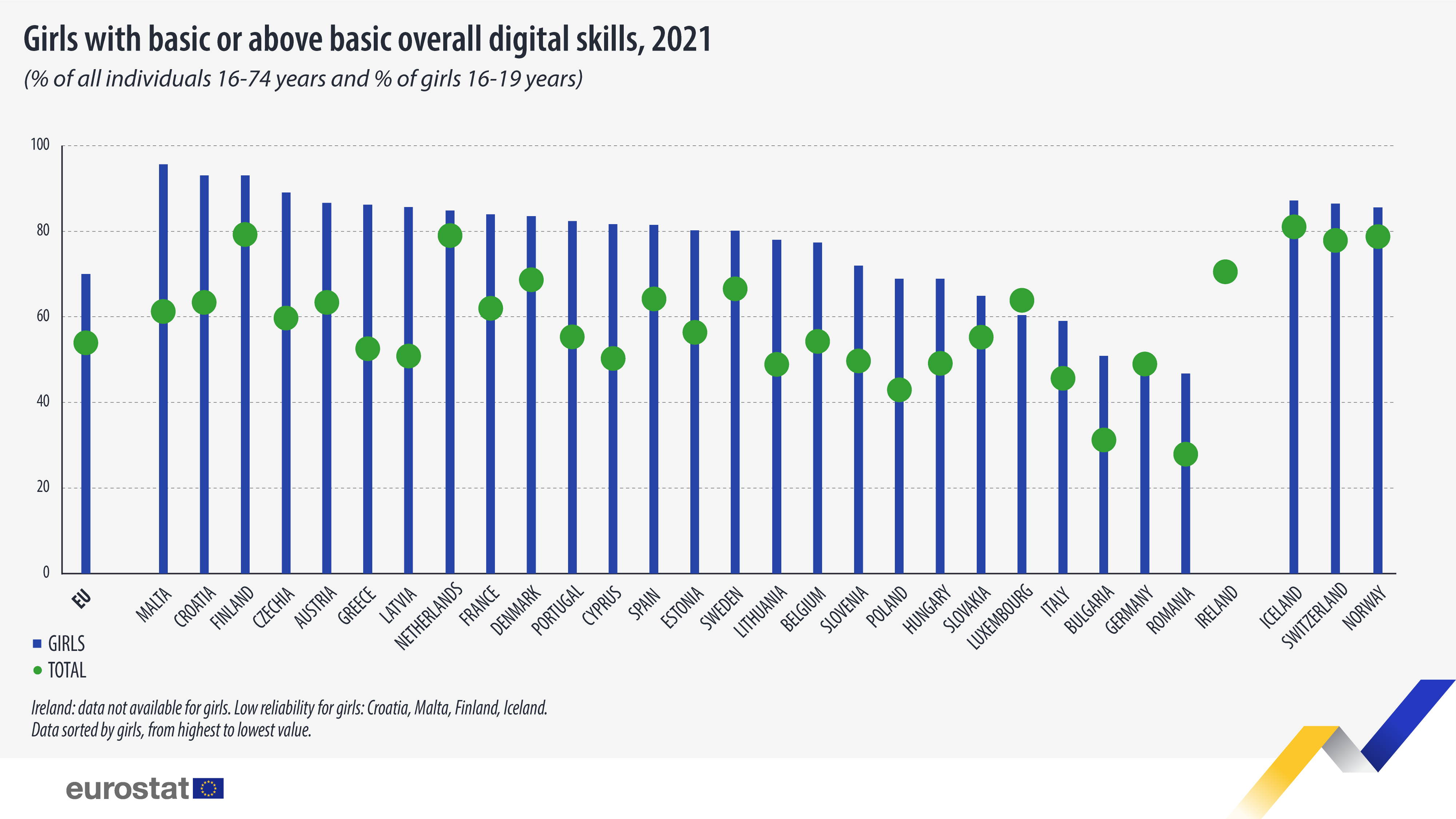70% of EU girls had basic or above basic digital skills

The International Day of Girls in ICT, celebrated annually on the 27th of April, highlights the need to promote technology career opportunities for girls and young women in the world's fastest-growing sector. With this year’s theme being “Digital Skills for Life”, it is particularly worth stressing how important digital skills are for girls to thrive in science, technology, engineering and mathematics (STEM) careers, and to become both educated ICT (Information and communication technology) users and creators in the digital world.
In 2021, 54% of all individuals and 52% of all women in the EU had basic or above basic overall digital skills, while that percentage was significantly higher among girls (16-19 years old) with 70%. Overall digital skills refer to five areas: information and data literacy skills, communication and collaboration skills, digital content creation skills, safety skills and problem-solving skills.
In 2021, the highest shares of girls with basic or above basic overall digital skills among the EU countries were: Malta (96%), followed by Croatia and Finland (both 93%), Czechia (89%) and Austria (87%).
The lowest shares were registered in Germany and Romania (both 47%), Bulgaria (51%), Italy (59%) and Luxembourg (60%).
According to the data, the percentage of girls with basic or above basic overall digital skills was higher in all EU members than the share of all individuals with the same level of skills. The only exceptions were Luxembourg (64% of all individuals vs 60% of girls) and Germany (49% vs 47%). In 15 EU members, the difference between the percentage of girls with basic or above basic overall digital skills and the percentage of all individuals was 20 or more percentage points higher for girls.
Digital skills indicators are some of the key performance indicators in the context of the Digital Decade, which sets out the EU’s vision for digital transformation. The Digital Compass aims for 80% of EU citizens, aged 16-74 years old, to have basic or above basic digital skills by 2030.
Source dataset: isoc_sk_dskl_i21
For more information
- Statistics Explained article on Science, Technology and Innovation
- Thematic section on Science, Technology and Innovation
- Database on Science, Technology and Innovation
- International Day of Girls in ICT
- Women in Digital Scoreboard 2021
- European Girls and Women in ICT day
Methodological notes:
- “All individuals” refers to people 16 to 74 years old and “all women” refers to same age range of 16 to 74 years old. “Girls” refers to females 16 to 19 years old.
- To have at least basic overall digital skills, persons must know how to do at least one activity related to each area. For more information on the types of activities related to each skill, consult the methodology.
- The methodology for calculating the Digital Skills Indicator has changed as of 2021. The new indicator reflects the 5 competence areas of the revised Digital Competence Framework (DIGCOMP 2.0).
- Ireland: data not available for girls. Low reliability for girls: Croatia, Malta, Finland, Iceland.
If you have any queries, please visit our contact us page.

